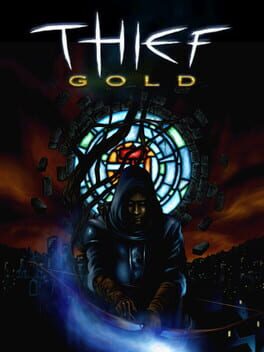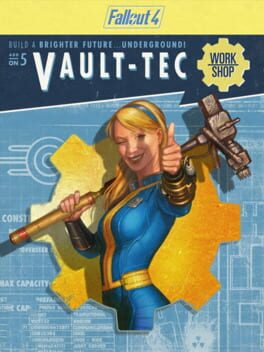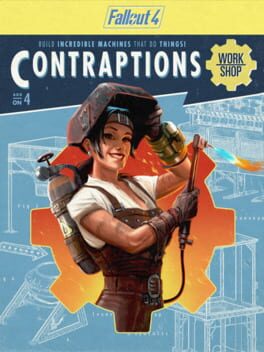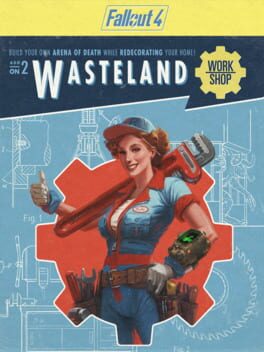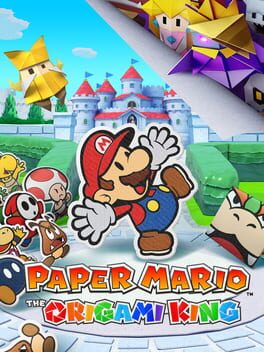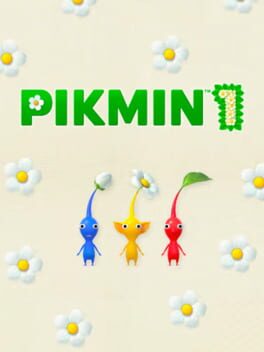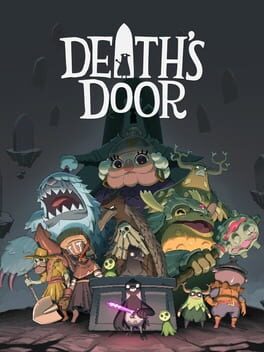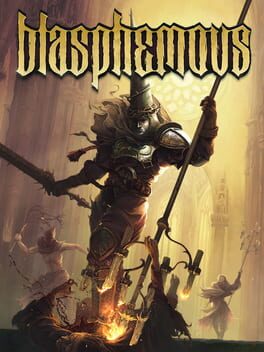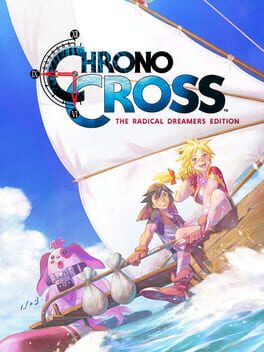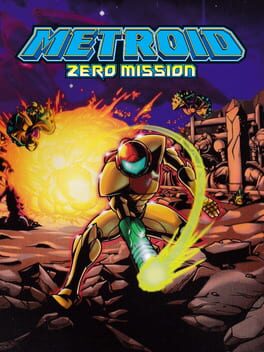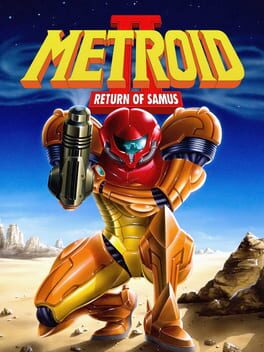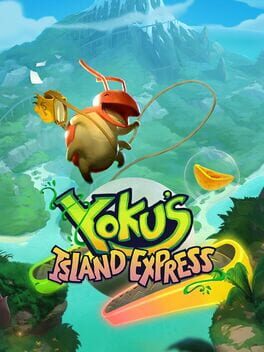nrc2223
1999
Aesthetically perfect, mechanically solid, occasionally janky as hell - it's a 90s classic, all right. The world of Thief is such a fascinating one, with its unique balance of pagan occultism and nascent industrialization being in constant conflict, sometimes even in the scope of a single level.
Old ways are eroding in the face of societal advancement, and the powers that be are willing to go to extreme lengths to balance the scales in their favor - enter Garrett, a charismatic and talented thief at the top of his game. At first, he's simply the best of the best, pulling heists on the City's wealthy to mostly pay his debts and not much else. Suddenly, he's offered a job so good it could let him retire for good if he does it right, with the mysterious patron promising riches beyond his wildest dreams. Little does he know that his efforts are aiding in the completion of the titular 'Dark Project' - a plan so diabolical that even selfish old Garrett feels obliged to help put a stop to it.
While the story isn't anything fresh, the levels themselves are often mini-plots of their own, and the highlights are so bright they stand tall even today in the annals of stealth games. Lord Bafford's Manor, The Sword, Song of the Caverns, Return to the Cathedral - the best ones are treats I could return to anytime, they're so good.
The bad levels, on the other hand, regularly kill the momentum and take so much time they manage to kill entire playthroughs. For my money, the worst ones are the Lost City and the Mage's Tower, the latter being so bad as to kill my playthrough of the game for nearly a year. Nothing so bad as to be insurmountable, but there's nothing more painful than starting a level thinking it'll be 30 minutes at most and realizing it'll actually be 2 hours because of the terrible layouts and frustrating objectives.
That said, I loved this so much I'd gladly start another playthrough this Halloween for the top-tier spooky vibes and shadowy aesthetics. Definitely near the peak of stealth games I've played and a new favorite for sure. Now, on to Thief 2!
Old ways are eroding in the face of societal advancement, and the powers that be are willing to go to extreme lengths to balance the scales in their favor - enter Garrett, a charismatic and talented thief at the top of his game. At first, he's simply the best of the best, pulling heists on the City's wealthy to mostly pay his debts and not much else. Suddenly, he's offered a job so good it could let him retire for good if he does it right, with the mysterious patron promising riches beyond his wildest dreams. Little does he know that his efforts are aiding in the completion of the titular 'Dark Project' - a plan so diabolical that even selfish old Garrett feels obliged to help put a stop to it.
While the story isn't anything fresh, the levels themselves are often mini-plots of their own, and the highlights are so bright they stand tall even today in the annals of stealth games. Lord Bafford's Manor, The Sword, Song of the Caverns, Return to the Cathedral - the best ones are treats I could return to anytime, they're so good.
The bad levels, on the other hand, regularly kill the momentum and take so much time they manage to kill entire playthroughs. For my money, the worst ones are the Lost City and the Mage's Tower, the latter being so bad as to kill my playthrough of the game for nearly a year. Nothing so bad as to be insurmountable, but there's nothing more painful than starting a level thinking it'll be 30 minutes at most and realizing it'll actually be 2 hours because of the terrible layouts and frustrating objectives.
That said, I loved this so much I'd gladly start another playthrough this Halloween for the top-tier spooky vibes and shadowy aesthetics. Definitely near the peak of stealth games I've played and a new favorite for sure. Now, on to Thief 2!
So much of the Fallout world and atmosphere stems from the understood falseness of the Vault system and its messaging - that the Vaults were a gilded lie sold to pre-bomb Americans to trick in them into various dangerous experiments under the guise of safety and security as the world fell apart. Even excluding the old isometric games, Fallout 3 and New Vegas made it very plain to the player that Vault-Tec was a psychotic and cruel organization that turned survivors into guinea pigs in the name of profit and scientific advancement. Sometimes the results of those experiments have a macabre humor to them - Vault 11 from New Vegas - or can even be openly silly - the Gary clones from 3 - but Vault-Tec is never given a comedic cop-out; they're a critique of unrestricted corporate interests exploiting and dehumanizing the propagandized American people for profit, and thus the player learns to recognize that Vault-Tec's actions are almost always intrinsically negative in a moral sense.
To trivialize that core piece of the fiction and warp it into a goofy lil "would you like to play Overseer and 'test' some NPCs in a vault of your own?" DLC is the final proof for me that Bethesda, despite their few brilliant moments, will fundamentally never truly understand the politics of Fallout nor the artistic intentions of the folks who created its world, and thus will never be the stewards this franchise deserves. A true "emperor has no clothes" moment for me.
To trivialize that core piece of the fiction and warp it into a goofy lil "would you like to play Overseer and 'test' some NPCs in a vault of your own?" DLC is the final proof for me that Bethesda, despite their few brilliant moments, will fundamentally never truly understand the politics of Fallout nor the artistic intentions of the folks who created its world, and thus will never be the stewards this franchise deserves. A true "emperor has no clothes" moment for me.
Literally just more tools and shit! The settlement system is such a good idea on paper but its execution is so unsatisfying that I regularly get annoyed at how much of the Fallout 4 experience - especially the DLC - is dedicated to it. Would that I could rewrite history and tell Todd Howard to drop it like a rock and write a god-damned RPG for once, but alas.
Mostly just a costly drop of new items and buildings for your settlements. If that's not your vibe (and it's certainly not mine), then it's not going to be worth your while. Also allows you to put NPCs of your choice (including your companions) in an arena to battle for your entertainment, which utterly devalues them as characters and effectively makes them action figures for the player to slap together. Fun for YouTube poop shenanigans if you're 12, I guess.
God, I want to love this more than I do, but there are two main things that hold it back for me: the combat and the narrative design.
For starters, I don't think the combat is actually bad per se - in fact, I actually found it quite fun for a while. The problem is that, outside of the boss fights, very little is done to expand the system outside of what you experience within the first hour of play, and the game is nearly 30 hours long. I could feel myself actively avoiding combat at a certain point to save myself time and tedium, and that's never a good sign.
When it comes to the narrative design, I feel the need to be more specific: the issue is not in the telling of the narrative, but rather some of the decisions made in the course of that telling. Several of the levels reach points of natural conclusion only to have the game suddenly insist you go on some circuitous side-quest or complete a small dungeon within the current dungeon, and frankly these unnecessary expansions of the story do little beyond making the game feel bloated and repetitive.
To be clear, I actually loved the writing of the game and exploring the world of Paper Mario - there's a specific combination of whimsy and melancholy that feels exclusive to this series, and Origami King is a worthy successor on that front. I just wish the game itself were a bit tighter, a bit more focused than what we ended up getting.
For starters, I don't think the combat is actually bad per se - in fact, I actually found it quite fun for a while. The problem is that, outside of the boss fights, very little is done to expand the system outside of what you experience within the first hour of play, and the game is nearly 30 hours long. I could feel myself actively avoiding combat at a certain point to save myself time and tedium, and that's never a good sign.
When it comes to the narrative design, I feel the need to be more specific: the issue is not in the telling of the narrative, but rather some of the decisions made in the course of that telling. Several of the levels reach points of natural conclusion only to have the game suddenly insist you go on some circuitous side-quest or complete a small dungeon within the current dungeon, and frankly these unnecessary expansions of the story do little beyond making the game feel bloated and repetitive.
To be clear, I actually loved the writing of the game and exploring the world of Paper Mario - there's a specific combination of whimsy and melancholy that feels exclusive to this series, and Origami King is a worthy successor on that front. I just wish the game itself were a bit tighter, a bit more focused than what we ended up getting.
2023
Full disclosure: I had to fail a whole 30 day playthrough of Pikmin to finally understand Pikmin. I just couldn't wrap my head around the controls for some reason, and each new day became strangely stressful and frustrating despite my seeming ability to perform all the necessary tasks on paper. When I saw Olimar's ship explode in fireworks and watched in horror as his corpse was fed to the pikmin machine, I wasn't sure the game was really for me.
Then I started my second playthrough and found God. It was like a lightswitch flicked on in my brain - this was so intuitive, so fun, so carefree. I was shocked at my own incompetence after having nearly written off the whole experience as a failed test run of a weird game idea. The learning curve finally made sense, and the world I'd found so hard to embrace on first pass became this beautiful space I couldn't wait to get back to. To call it a transformative playthrough would be a dishonor to the spiritual enlightenment I felt upon beating the Emperor and seeing the Captain escape home to his family with every single piece of the ship reclaimed.
I've now seen the truth, my faith has been restored, all things are right in the world. Miyamoto was right - Pikmin is the new Mario.
Then I started my second playthrough and found God. It was like a lightswitch flicked on in my brain - this was so intuitive, so fun, so carefree. I was shocked at my own incompetence after having nearly written off the whole experience as a failed test run of a weird game idea. The learning curve finally made sense, and the world I'd found so hard to embrace on first pass became this beautiful space I couldn't wait to get back to. To call it a transformative playthrough would be a dishonor to the spiritual enlightenment I felt upon beating the Emperor and seeing the Captain escape home to his family with every single piece of the ship reclaimed.
I've now seen the truth, my faith has been restored, all things are right in the world. Miyamoto was right - Pikmin is the new Mario.
2018
One of my favorite "smooth-brain" games - an experience with a central gameplay loop so satisfying that I can zone out for hours playing it and not get bored. To its credit, the rest is also quite excellent, with the story and visual design deserving plenty of praise all on their own.
I managed to actually complete the epilogue, so I feel comfortable in leveling my one major critique of the game - it starts to get extremely repetitive after your first full run. The unlockable aspects of your weapons are cool, and the side quests do provide some nice motivation for continued play, but I felt my enthusiasm waning as the canvas of the story started retracting with each subsequent success.
Still, this is the best game Supergiant has made thus far (I have real high hopes for Hades II) and absolutely a worthwhile play for any Greek mythology fans or players looking for the next "endless" game to keep them satisfied.
I managed to actually complete the epilogue, so I feel comfortable in leveling my one major critique of the game - it starts to get extremely repetitive after your first full run. The unlockable aspects of your weapons are cool, and the side quests do provide some nice motivation for continued play, but I felt my enthusiasm waning as the canvas of the story started retracting with each subsequent success.
Still, this is the best game Supergiant has made thus far (I have real high hopes for Hades II) and absolutely a worthwhile play for any Greek mythology fans or players looking for the next "endless" game to keep them satisfied.
2021
So cute and full of character that I find it hard to be too critical. Most of my nitpicks stem from the combat and the writing, to varying degrees. I was reminded a lot of Tunic while playing - lots of Zelda DNA, a few splashes of Dark Souls here and there. To that end, I think a few of the combat encounters are designed with a Souls-like eye for challenge that doesn't particularly suit the speed of the game, although that could just be me.
Writing-wise, my feelings are mostly positive with a couple of niggling concerns. The capitalist critiques present in the narrative are more than welcome and add some nice texture to the game, and I quite enjoyed the dialogue from the wide cast of characters you meet on your travels. But there are a few places - namely the boss fights - where the writing felt a bit too first-drafty, and so the impact of their stories was more muted than I'd like. Plus I didn't know that this was a pseudo-sequel to Titan Souls, so the true ending landed like a total thud to me after all the work to get it.
I'm sounding harsher than my actual feelings would reflect, because on the whole I had a total blast here. The developers crafted something with a distinctive flavor and I'd love to see what they do next - either a direct sequel (which I would gladly welcome with this world) or a new experience that takes the lessons from this and builds on them to make something truly excellent.
Writing-wise, my feelings are mostly positive with a couple of niggling concerns. The capitalist critiques present in the narrative are more than welcome and add some nice texture to the game, and I quite enjoyed the dialogue from the wide cast of characters you meet on your travels. But there are a few places - namely the boss fights - where the writing felt a bit too first-drafty, and so the impact of their stories was more muted than I'd like. Plus I didn't know that this was a pseudo-sequel to Titan Souls, so the true ending landed like a total thud to me after all the work to get it.
I'm sounding harsher than my actual feelings would reflect, because on the whole I had a total blast here. The developers crafted something with a distinctive flavor and I'd love to see what they do next - either a direct sequel (which I would gladly welcome with this world) or a new experience that takes the lessons from this and builds on them to make something truly excellent.
2019
A wonderfully macabre Metroidvania. As a former Catholic, the aesthetics here were total catnip to me, and the hysterically overwrought dialogue made this all almost comical despite the disturbing nature of everything. Repetitive combat, but, excluding a couple of extremely aggravating boss fights, nothing here was so hard as to seriously damage my appreciation for the game on the whole. A bloody and beautiful bit of blasphemy - I can't wait to see how the sequel stacks up.
One of the most deranged and thrilling RPG experiences I've ever had.
The first 2/3rds are almost beat-for-beat what I would want from a Chrono Trigger sequel - a compelling conceptual hook, a gorgeous and cozy world to explore, a wild and unpredictable story with plenty of interesting characters. Up to entering the Dead Sea, I was so on-board with the game that I was almost confused by its infamously mixed reputation.
Then I hit the final 1/3rd and all things were made clear. As an indirect sequel to Chrono Trigger, Cross is an excellently inspired pivot that feels thematically linked to its predecessor without too much in the way of narrative baggage. The last act of the game, then, serves to throw out all the goodwill of what you've played thus far and exchanges it for some of the most batshit and frustrating creative backtracking you're likely to see. Nearly every element of the game is retroactively shoe-horned into being related to the story of Chrono Trigger, and at a certain point it reeks of a kind of cowardice that the developers didn't have enough faith in this story to let it stand its own merits, instead content to link its identity inexorably to a game that was already beloved for its own singularity.
All that said, I still loved my time in Chrono Cross and wouldn't trade a minute of it - I even played the "Radical Dreamers" visual novel and had a good time with it. I just wish that the game's final impression wasn't one so compromised and malformed, that it had been confident enough to stand on its own strengths and craft a story worthy of the spectacular work that surrounds it. Instead, we get a great but flawed game, idiosyncratic in all the best and worst ways. I love it to death and simultaneously wish that I could change whole swaths of it. In that way, the game perfectly encapsulates its own metaphor - there could be another life, another reality where Chrono Cross could be the game I want it to be, but would it be the same life where I love it as much I do now?
The first 2/3rds are almost beat-for-beat what I would want from a Chrono Trigger sequel - a compelling conceptual hook, a gorgeous and cozy world to explore, a wild and unpredictable story with plenty of interesting characters. Up to entering the Dead Sea, I was so on-board with the game that I was almost confused by its infamously mixed reputation.
Then I hit the final 1/3rd and all things were made clear. As an indirect sequel to Chrono Trigger, Cross is an excellently inspired pivot that feels thematically linked to its predecessor without too much in the way of narrative baggage. The last act of the game, then, serves to throw out all the goodwill of what you've played thus far and exchanges it for some of the most batshit and frustrating creative backtracking you're likely to see. Nearly every element of the game is retroactively shoe-horned into being related to the story of Chrono Trigger, and at a certain point it reeks of a kind of cowardice that the developers didn't have enough faith in this story to let it stand its own merits, instead content to link its identity inexorably to a game that was already beloved for its own singularity.
All that said, I still loved my time in Chrono Cross and wouldn't trade a minute of it - I even played the "Radical Dreamers" visual novel and had a good time with it. I just wish that the game's final impression wasn't one so compromised and malformed, that it had been confident enough to stand on its own strengths and craft a story worthy of the spectacular work that surrounds it. Instead, we get a great but flawed game, idiosyncratic in all the best and worst ways. I love it to death and simultaneously wish that I could change whole swaths of it. In that way, the game perfectly encapsulates its own metaphor - there could be another life, another reality where Chrono Cross could be the game I want it to be, but would it be the same life where I love it as much I do now?
2022
A new favorite Zelda-like, although I will say the combat wasn't really to my liking. The boss fights especially felt weirdly balanced and clunky, but that could be a me-issue rather than a flaw in the game itself.
On the other hand, the puzzles in this game are unparalleled - the "Final Puzzle" was so satisfying to solve that I rode the intellectual high of it for days afterward. The Fez-like world design lent a lot of playfulness to exploration as well, with each space finding entire worlds of dimension simply through a camera-spin or a turn around the corner.
Would love to see the folks behind this make a sequel - there's some seriously compelling creative gas in the tank here and I'd hate to see it capitalized on only once.
On the other hand, the puzzles in this game are unparalleled - the "Final Puzzle" was so satisfying to solve that I rode the intellectual high of it for days afterward. The Fez-like world design lent a lot of playfulness to exploration as well, with each space finding entire worlds of dimension simply through a camera-spin or a turn around the corner.
Would love to see the folks behind this make a sequel - there's some seriously compelling creative gas in the tank here and I'd hate to see it capitalized on only once.
For my money, the best entry-point for any potential Metroid fan to cut their teeth on. This was the first game in the series I ever played, so going back and completing it in full this time was a fantastic full-circle moment. Compared to the original, this is a far easier game to love, with its QoL improvements and updated visual palate bringing a whole new life to the experience compared to Spartan efficacy of the first Metroid's aesthetics. Even the boss fights have been improved, and the new inclusions are mechanically fresh enough to feel like worthy adversaries.
I feel a little mixed on the new Zero Mission epilogue, but the overall impression is mostly positive. Taking a new angle to the Metroid formula with a pseudo-stealth section is a great idea on paper, and tonal switch-up that came with the new section is certainly a welcome one. I just found the encounter design to be a little wonky, almost as if the developers hadn't quite nailed the flow of some of the rooms before dropping the enemies in.
Still, this is absolutely a major jewel in Metroid's legendary crown and a sterling example in how to remake a classic game right.
I feel a little mixed on the new Zero Mission epilogue, but the overall impression is mostly positive. Taking a new angle to the Metroid formula with a pseudo-stealth section is a great idea on paper, and tonal switch-up that came with the new section is certainly a welcome one. I just found the encounter design to be a little wonky, almost as if the developers hadn't quite nailed the flow of some of the rooms before dropping the enemies in.
Still, this is absolutely a major jewel in Metroid's legendary crown and a sterling example in how to remake a classic game right.
1994
What an absolute ripper - basically almost perfect in my estimation. The Metroidvania subgenre reached its self-actualization point here and gaming history has never been the same since. I only wish I could play this with fresh eyes and relish the magic of a watershed gaming experience all over again.
A two-steps-forward, one-step-back kind of sequel. A few mechanical tweaks and an added emphasis on narrative made this more memorable on the whole than its predecessor, but there's still a feeling of "not quite there" that's hard to shake. Partly, this stems from the linear cul-de-sac design of the world compared to the circuitous labyrinth of the original - knowing that you can't proceed until you fully explore a giant chunk of the world to find a single Metroid only gets more frustrating as the game goes along, and the lack of a map makes the lack of direction truly painful at points.
The story is the star here, though - it's still indirect like the original, but the harshness of Samus's genocidal assignment begins to seriously weigh on the player as they dive deeper and deeper into the Metroid planet. That ending is a stunner too, a brief ray of hope after a truly harrowing odyssey of extinction.
Can't say I loved it, but much like the first game, my overall respect for this game is boundless.
The story is the star here, though - it's still indirect like the original, but the harshness of Samus's genocidal assignment begins to seriously weigh on the player as they dive deeper and deeper into the Metroid planet. That ending is a stunner too, a brief ray of hope after a truly harrowing odyssey of extinction.
Can't say I loved it, but much like the first game, my overall respect for this game is boundless.
Turning a pinball game into a Metroidvania is such a deliriously inspired choice that it almost makes me want to give this a higher rating. Unfortunately, some elements of the pinball mechanics translate to being more frustrating than fun - namely traversing the world and entering/exiting the various "encounters" you bounce around. Sad to hear that the developers behind this have split since its release because this feels one iteration shy of being something truly next cutting edge for the subgenre. Still, it's charming, silly fun and that's all you can really ask for sometimes.
